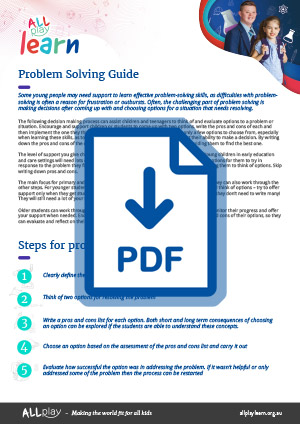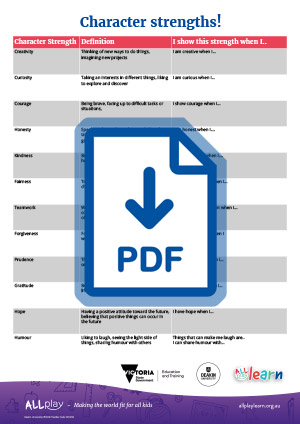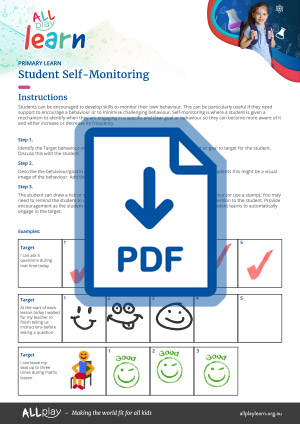

About behaviour
Sometimes students may behave in ways that disrupt the class and impact their educational progress. This could involve physical actions (e.g. damaging equipment, fighting) or the way that a student interacts with others (e.g. shouting, saying unkind things), or difficulty engaging a student in activities (e.g. not listening to teachers or following instructions, not completing work).
Disruptive behaviours that might affect students can also include things like defiance and hostility towards others, emotional meltdowns, rule breaking, or skipping school.
Behaviour always serves a purpose. Students may engage in challenging behaviour to communicate how they are feeling, or a need or a want. Challenging behaviour may have a negative impact on those around the student, yet be functional for the student (e.g. help them avoid a stressor). A student may be more likely to engage in challenging behaviour if they have communication, social or cognitive challenges, or if they are feeling anxious or scared. It is important to note that some behaviours that may be considered challenging in an educational environment may not be considered as a challenging behaviour in other settings or cultures (such as the student’s home/family), or may be a characteristic of a disability (e.g. fidgeting/restlessness - ADHD; direct communication that may not consider social implications - autism). Communication with the student’s family and health professionals to understand why a behaviour may occur, and whether/how it should be addressed, may be important.
While most of the behaviour strategies to follow will be beneficial for all students, they may be particularly relevant for some specific groups of students. Use the tabs below to explore when and why evidence-based positive behaviour supports may be particularly helpful for some students.

Evidence-based strategies
Create a positive environment
Create a structured and proactive environment
Adapt your teaching and communication
Build their skillset

Other considerations
Safety
First aid
Safety drills
Additional staff members
Friendships
Homework
Excursions/camps
Other co-occurring conditions

Relevant resources
Visit our resources page for a range of resources that can help to create inclusive education environments for students with disabilities and developmental challenges. Some particularly relevant resources for supporting students with behavioural issues include:



